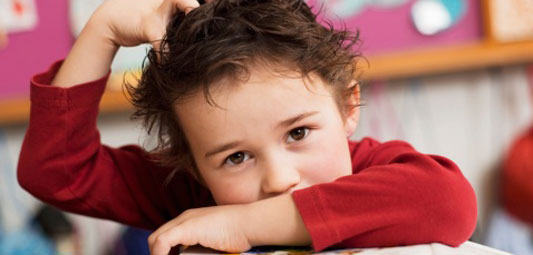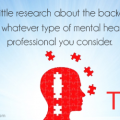The fact that anger can be one of the most difficult emotions to both understand and control as an adult should give some idea as to how hard it can be for kids living with excessive anger. As a child grows older, he or she will learn to manage their anger in a manner that’s more befitting an adult, but for a great many years it is extremely difficult for a still-developing child to have any real grasp of what anger is, where it comes from or how to handle it.
There are plenty of professionals who repeatedly state that there are no such things as ‘wrong’ or ‘bad’ emotions as each and every one is a part of both childhood and human life. Which is all well and good, but at the same time it’s wholly counterproductive not to help a child that may be suffering from an excessive bout or prolonged period of any unpleasant emotion.

Identifying the Problem
According to the experts at www.integratedtreatmentservices.co.uk, the single most important step in the process is that of helping the child begin to understand where their feelings of anger are coming from. Younger children in particular spend much of their lives in a state of confusion which has a tendency to make feelings of anger worse. As such, by helping them identify what it is that’s causing their feelings, you can then move onto the process of addressing them.
Childhood anger can stem from a thousand and one different events and growing pains, though some of the most common causes include:
- Bullying – Either in or out of school, perhaps even by siblings
- Changes in Life – Moving house, parental separation, new baby etc.
- Underperforming – Children who continually fail at school may be prone to anger
- Lack of Confidence – Poor self-esteem is a driver of anger
- Insufficient Attention – Kids often get angry when they feel ignored
- Fatigue – On-going tiredness is a catalyst for anger
Of course this list is far from exhaustive and should be interpreted only as a rough introductory guide. In reality, actually pinpointing the exact cause of the child’s anger can be extremely difficult to say the least, but with the right approach and a little outside help, there’s every chance you can help them progress beyond their controlling anger.
Helpful Tips for Addressing and Combatting Anger
There are several ways and means by which parents can help make a real difference, which include the following:
- Don’t be afraid to discuss the subject of their anger out in the open, as this is often the best way of finding out where it stems from.
- Talk about the way the anger makes them feel and the physical effects it has on them. Ask them what they want to do or how they want to act while feeling angry.
- Communicate the importance of being responsible enough to walk away, stop talking and count to ten or take deep breaths when angry to avoid knee-jerk reactions.
- Offer plenty of praise and reassurance each time your child behaves in an anger and aggression-free manner.
- When his or her anger triggers present themselves, don’t give them any further reason to get angry by showing anger yourself. Any signs of anger from you will further intensify their habits.
- Think beyond the specific anger triggers to the more calming and relaxing activities that could help bring their anger back under control. From getting more sleep to restricting sweets, sugary drinks and anything likely to produce a ‘nervous energy’ effect, relaxation and a cut-down on stimulation can work wonders.
There’s only ever so much any parent can do in many instances however as it takes considerable talent and experience to be able to both reach out to an angry child and begin understanding their troubles. This is why in any and all instances where such a problem is suspected, it’s always a good idea to seek professional advice from a reputable therapist group.
As is the case with so many childhood development problems, the key to identifying and addressing any issues with anger is to do so as quickly as possible and under the watch of the industry’s most experienced professionals. Most examples of childhood anger can be largely or wholly alleviated in a relatively short period of time – the key as mentioned above being to identify the cause. It often takes a neutral and objective third-party to take a look into the child’s home life and school life to make this happen – the perspective of the parent is often one that’s blinkered to certain traits and triggers.






























